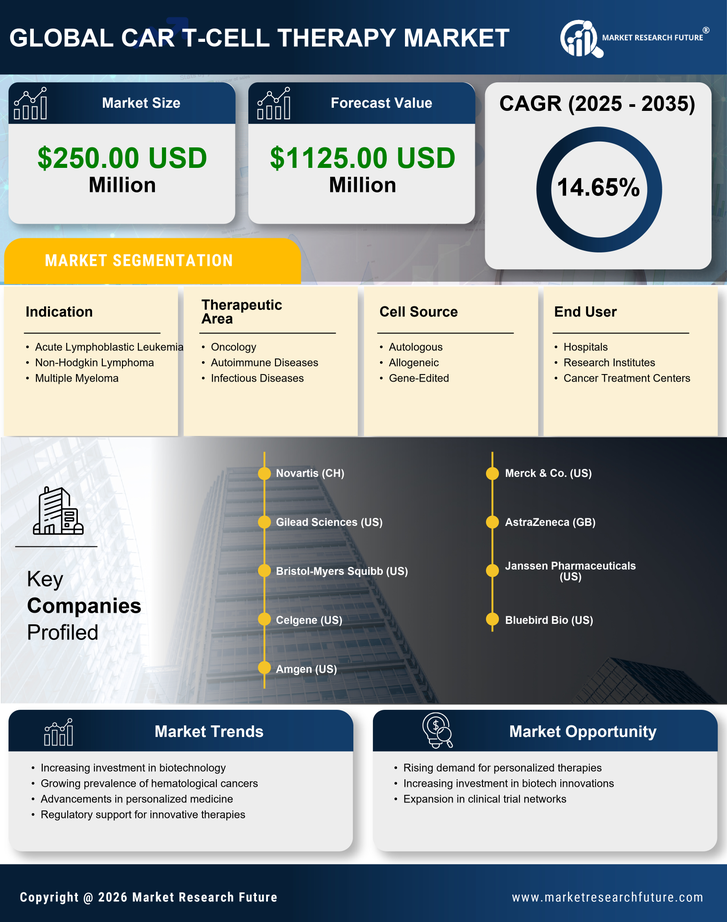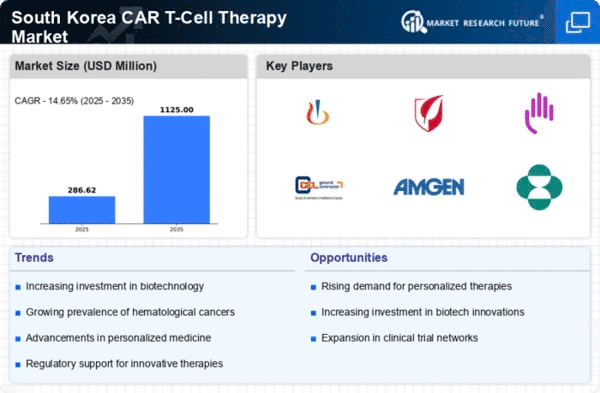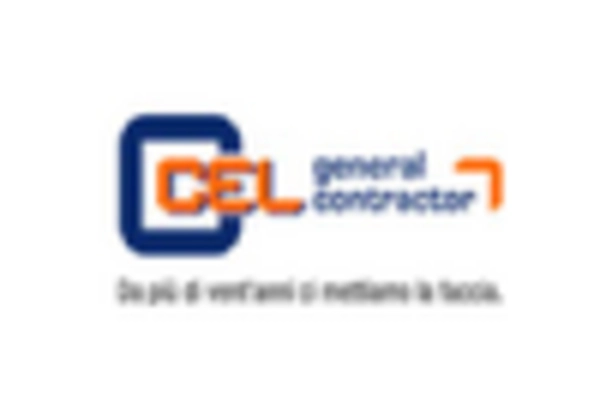Increasing Cancer Incidence
The rising incidence of cancer in South Korea is a pivotal driver for the car t-cell-therapy market. As the population ages, the prevalence of various cancers, including hematological malignancies, has escalated. Reports indicate that cancer is the leading cause of death in the country, with approximately 300,000 new cases diagnosed annually. This alarming trend necessitates innovative treatment options, such as car t-cell therapies, which have shown promising results in clinical trials. The demand for effective cancer treatments is likely to propel investments in research and development within the car t-cell-therapy market, as healthcare providers seek to improve patient outcomes and survival rates.
Collaborative Clinical Trials
Collaborative clinical trials between academic institutions and pharmaceutical companies are emerging as a significant driver for the car t-cell-therapy market. In South Korea, partnerships are being formed to conduct trials that evaluate the efficacy and safety of new car t-cell therapies. These collaborations not only pool resources but also enhance the quality of research through shared expertise. As a result, the car t-cell-therapy market is likely to see an increase in the number of approved therapies, which could lead to a broader range of treatment options for patients. The success of these trials may also encourage further investment in the market, fostering innovation and development.
Government Support and Funding
Government initiatives and funding play a crucial role in the growth of the car t-cell-therapy market. The South Korean government has been actively promoting biotechnology and healthcare innovation through various funding programs and grants. In recent years, the government allocated over $500 million to support research in advanced therapies, including car t-cell therapies. This financial backing not only encourages research and development but also facilitates collaboration between academic institutions and industry players. As a result, the car t-cell-therapy market is likely to benefit from enhanced research capabilities and accelerated product development, ultimately improving treatment options for patients.
Growing Awareness and Acceptance
There is a notable increase in awareness and acceptance of car t-cell therapies among healthcare professionals and patients in South Korea. Educational initiatives and outreach programs have contributed to a better understanding of the benefits and potential of these therapies. As more healthcare providers become familiar with car t-cell therapies, the likelihood of their adoption in clinical practice increases. This growing acceptance is expected to drive demand within the car t-cell-therapy market, as patients seek out innovative treatment options. Furthermore, as success stories emerge, public perception is likely to shift positively, further enhancing the market's growth prospects.
Advancements in Genetic Engineering
Technological advancements in genetic engineering are significantly influencing the car t-cell-therapy market. Innovations in CRISPR and other gene-editing technologies have enhanced the ability to modify T-cells, making them more effective against cancer cells. In South Korea, research institutions and biotech companies are increasingly focusing on these technologies, which could lead to more personalized and effective therapies. The market is expected to witness a surge in the development of next-generation car t-cell therapies, potentially increasing the overall market size. As these advancements continue, they may also attract funding and partnerships, further stimulating growth in the car t-cell-therapy market.

















